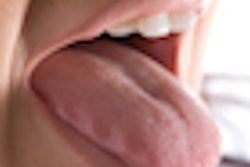
Patients who experience loss of taste and smell but are otherwise asymptomatic may be carriers of the novel coronavirus, causing the rapid spread of the outbreak, according to the British Association of Otorhinolaryngology -- Head and Neck Surgery.
The association, which is the professional body that represents ear, nose, and throat surgeons and other specialists in the U.K., issued a statement on March 21 that clinicians should encourage patients who have lost their sense of smell but have no other symptoms to self-isolate to help stop the spread of SAR-CoV-2, the virus that causes the respiratory disease COVID-19. After the statement was released, Nirmal Kumar, MD, the association's president, added that loss of taste also may be a warning sign of the virus, according to news reports.
"In addition to the current symptom criteria used to trigger quarantine, we might be able to reduce the number of otherwise asymptomatic individuals who continue to act as vectors, not realizing the need to self-isolate," said Dr. Kumar and Claire Hopkins, BMBCh, president of the British Rhinological Society and a professor at King's College London, in a joint statement.
Currently, these types of patients don't meet the testing criteria for the novel coronavirus.
Number of patients who lose their senses rising
About 40% of the cases of anosmia, defined as partial or complete loss of smell, occur after patients have viruses. Previously described coronaviruses are thought to account for up to 15% of these cases, so it is not surprising that the novel coronavirus also may cause anosmia in infected patients, the organizations noted.
The associations' clinicians came to this conclusion after seeing a surge in patients experiencing a loss of smell, as well as ample evidence from South Korea, China, Germany, and Italy that shows a significant number of patients with proven SARS-CoV-2 infection developed anosmia or hyposmia, which is a reduced ability to smell.
In Germany, it is reported that about 2 in 3 confirmed cases have anosmia. In South Korea, where testing has been more widespread, 30% of patients who tested positive have had anosmia as their major presenting symptom in otherwise mild cases, the clinicians wrote.
Clinicians in the U.K. saw four patients, all younger than age 40, in the past week who were asymptomatic except for the recent onset of anosmia. Typically, they see this in about one patient per month.
Also, cases of patients experiencing loss of smell have been widely shared on medical discussion boards by surgeons from all regions with high numbers of cases. Medical professionals in Iran, the U.S., and France have reported similar information, according to the statement.
Utah Jazz player Rudy Gobert, who was diagnosed with COVID-19 in mid-March, reported that his symptoms included a loss of taste and smell, according to reports.
A potential screening tool
While the rise in losses of taste and smell could be caused by typical rhinovirus and coronavirus strains, these symptoms could provide clinicians with a chance to clamp down on the virus.
"It could potentially be used as a screening tool to help identify otherwise asymptomatic patients, who could then be better instructed on self-isolation," they said in the statement.
Finally, the use of oral steroids for the treatment of new anosmia should be avoided, specifically if it is unrelated to head trauma or nasal pathology due to reports that corticosteroid use could increase the severity of COVID-19, the association members wrote.



















